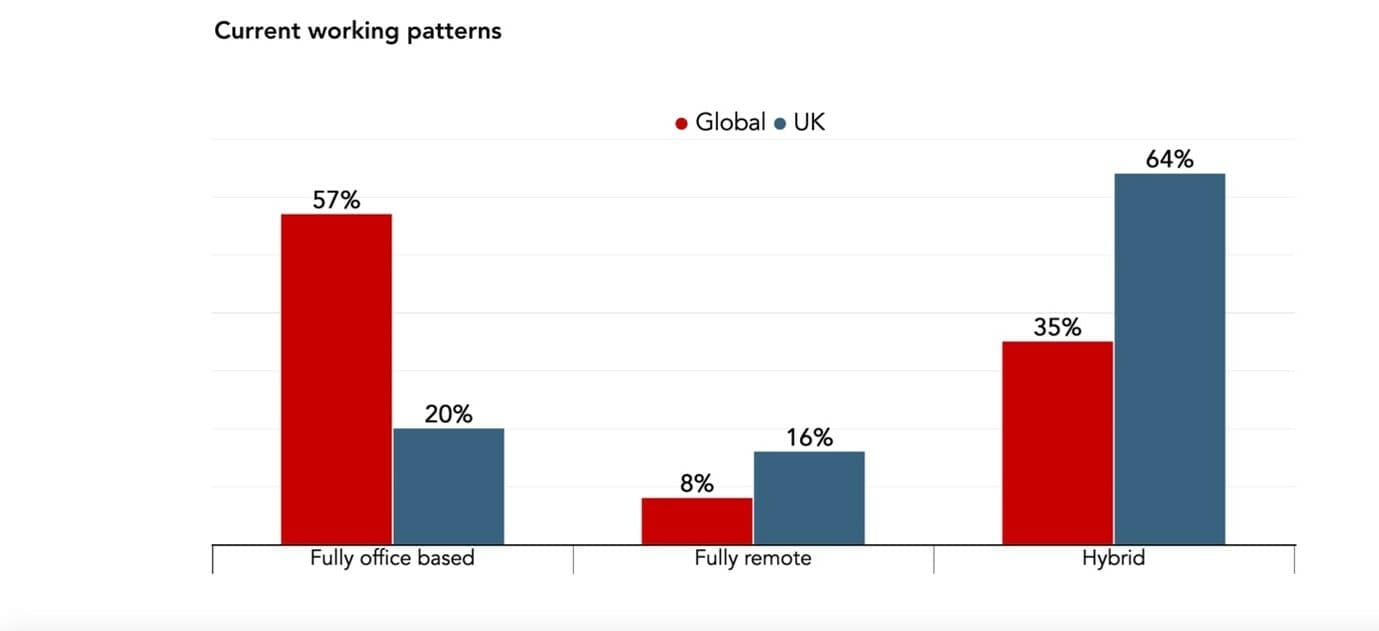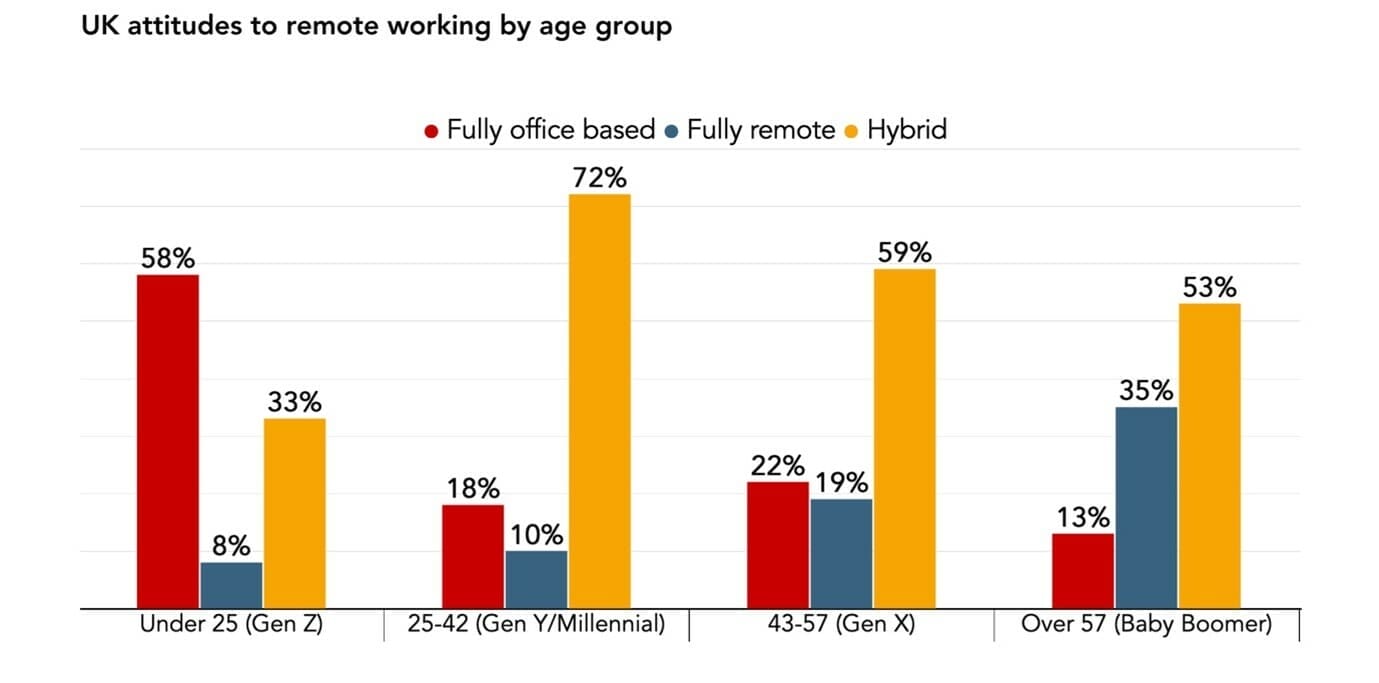Hybrid teams – How effectively do we manage them?
By Paul Richmond, Managing Director.
The latest report from ACCA on global work trends makes for interesting reading. In the UK we are more likely to be embracing hybrid and fully remote working compared to other global countries. Whether this is down to the way we locked down and what people realised was possible, the nature of the service workforce we have in the UK, or the commute is hard to tell.

Image 1: ACCA global work trends – Current working patterns
But one thing is for sure – it means your firm must ensure it can manage your people really well because that management interaction is driving your culture and it’s going to impact the younger members of the team most of all as this ACCA image shows:

Image 2: ACCA global work trends – UK attitudes to remote working.
It’s no surprise that the older you are, the more you prefer working from home – it’s bigger, more comfortable and you don’t need to commute, leading to 35% of baby boomers wanting to be fully remote.
This is a huge chunk of your senior, most experienced workforce.
It’s one of the biggest concerns we hear from partners and staff – “How can we effectively manage a hybrid team?” and this is the first in a series of blogs on how the best firms are tackling that issue and finding that when managed well (and this means partners and managers have a very clear picture of what to do), you will increase productivity and retention.
There is a great deal of best practice tips out there on how we can best manage a hybrid workforce but, I believe people in professional services find this hard because we were not that good at it in the first place. Our team simply went to the office and if managers/partners were busy with client work we knew our employees would enjoy their day because there was always someone else around to talk to and answer questions. And of course, that leads to a view that culture is linked to a building. It’s not.
#1 YOU represent the firm’s culture
Whatever your firm’s values, mission, vision or purpose, you represent all of them to your team. Because if someone is remote working, their line manager is the sole purveyor of all the firm’s behavioural preferences – effective feedback, coaching, encouragement, and performance management. Because people do not have the same balance of seeing others in action around the office.
Ensure all your partners and managers have excellent interpersonal and behavioural skills.
#2 Plan time together
In the next blog in this series, I will highlight some of the work done by McKinsey and Gartner on the impact of asking people to “come to the office 2 or 3 days a week”. It’s an attempt to control without purpose – so what are you going to do with them on arrival? Because they could be sitting anywhere with their head in a laptop!
Look at the tasks you need to do for clients and projects and plan work appropriately – brainstorm together in the office, and work asynchronously when it’s more effective.
This article from The Enterprisers Project highlights some of the reasons why hybrid works and simplifies the four different ways of working:
Plan time together when people are in the office, mandate who comes in when and give them a real purpose for that. (Not just that you have cakes on Wednesdays!)
#3 Talk about it
I think many leaders in firms – managing partners and partners are genuinely concerned that the culture is ‘changing’ and undoubtedly it has. But that’s natural and to be expected – it will change as IT and AI develop, as professional services firms change from being staffed by accountants and lawyers to becoming a more inclusive workplace with a variety of specialities designed to support client aims and goals.
If you’re wondering how to connect with people there is a 90-second clip from the World Economic Forum here worth a look.
The essential advice is to make sure you connect with all the people in your direct team individually, every week. Bring them together virtually every week too and focus on the key goals that the team is working towards.
It’s a big job!
So don’t try and work it all out yourself now. Get in touch with me by email here and let us help you understand where you are now and we can point you in the right direction or offer you more support.